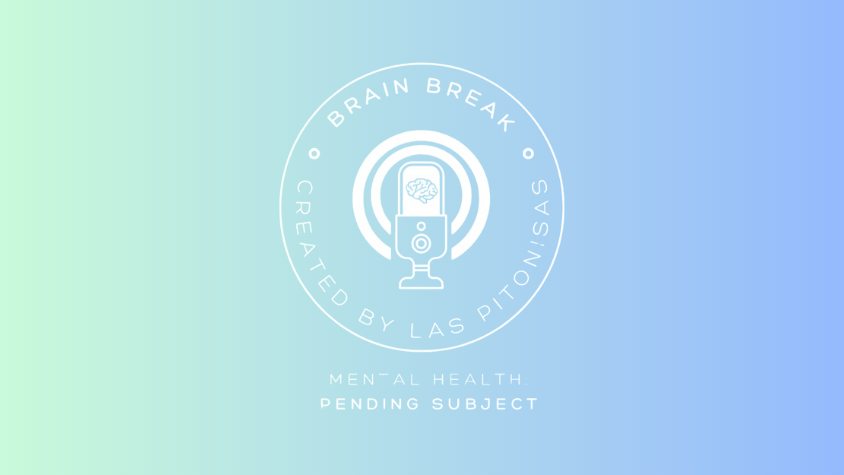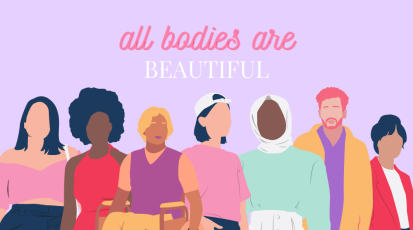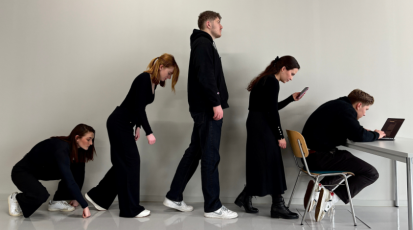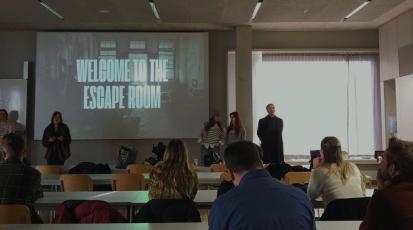The pandemic of the mentally ill

Over 50 per cent of students at German universities struggle with mental health problems and illnesses. The number of unreported cases is estimated to be very high, as the topic is far from being completely destigmatised. Good mental health is connected to academic success and quality of life, alongside a student's decision to continue with their studies. Thus making mental health a crucial concern for universities.
Although the pandemic has had a significant impact on the mental health of college students, it was already an issue before the pandemic. This crisis period meant a change in mentality and expanded the conversation around mental health.
In the following four podcast episodes, we want to tackle this topic. We asked experts where they think the difficulties around mental health in universities lie and what solutions are currently being worked on.
Episode 1: David Sixt
María Iguacel Barceló, Alejandro Gala, Jacqueline Trautmann, Yasmin Köseli
In an interview with David Sixt, we found out what it's like to be one of two mental health advisors at a university with over 5,000 students. David also told us what he thinks are the biggest problems that students have to deal with.
Links to the episode:
Episode 2: SUNMENTORS
Jacqueline Trautmann, Yasmin Köseli, María Iguacel Barceló, Alejandro Gala
In the second episode of BrainBreak, Christina Meyn talks about the role lecturers play in dealing with mental difficulties and illnesses. She also reports on how she is fighting for more mutual understanding and exchange with her project.
Your way to the Projects website:
Instagram:
Episode 3: Techniker health insurance
Jacqueline Trautmann, Yasmin Köseli, María Iguacel Barceló, Alejandro Gala
Isabell Indorre and Jessica Neumann are responsible for working with universities at Techniker Krankenkasse. In the third Episode of our series, they explain what a health insurance company can do to help students with mental health problems during their studies.
Business cards of Isabell and Jessica:
My7steps:
TK-Mental strategies:
https://www.tk.de/techniker/magazin/life-balance/im-studium/mit-den-tk-mentalstrategien-gegen-stress-vorgehen-2010268?aid=h7f
TK-Health coach:
https://www.tk.de/en/i-am-tk/tk-members/manage-stress-2098326?aid=h7f
University sport:
Allgemeiner Hochschulsport | Universität Stuttgart (uni-stuttgart.de)
Episode 4: The Working Mind
María Iguacel Barceló, Alejandro Gala, Jacqueline Trautmann, Yasmin Köseli
In the fourth episode of BrainBreak, Emily Nething introduces us to her project The Working Mind. A programme to promote mental health and destigmatize mental illness at the University of Greifswald.
Your way to the Projects website:
Instagram:
https://www.instagram.com/theworkingmind.unigreifswald/?utm_source=qr
Help points
Crisis hotline
Sufferers and their relatives can call 0800 1110111 and 0800 1110222 for immediate help. The hotline is available 24 hours a day, anonymously and free of charge. The "TelefonSeelsorge" also offers mail, chat and on-site counseling.
There is also a Muslim counseling hotline that can be reached around the clock at 030 443509821.
“Mental health" advice hotline
The Robert Enke Foundation, founded in 2010, has set up a counseling hotline with the Clinic for Psychiatry, Psychotherapy and Psychosomatics at RWTH Aachen University Hospital - for competitive athletes, but also for other people suffering from mental disorders. The telephone number: 0241 8036777 (available Monday to Friday from 9 a.m. to 12 noon and 1 p.m. to 4 p.m.).
Depression information hotline
The German Depression Aid Foundation has set up a depression information hotline on 0800 3344533 (available Monday, Tuesday and Thursday 1-5pm and Wednesday and Friday 8.30am-12.30pm). The hotline is free of charge and provides information for those affected and their relatives about where to go if they have mental health problems.
The number against grief
The number against grief was set up especially for children and young people. The staff on 116 111 provide anonymous and free advice to affected adolescents - Monday to Saturday from 2 p.m. to 8 p.m.
The German Caritas Association offers e-mail counseling specifically for children and young people with suicidal thoughts.
Online forum on depression
Contact with other sufferers helps to cope with mental health problems. In the online forum for depression, sufferers can exchange ideas and give each other advice.
Self-help group
Self-help groups can be a useful addition to psychotherapeutic treatment. The NAKOS (National Contact and Information Center for the Encouragement and Support of Self-Help Groups) provides an overview by place of residence. The website www.schon-mal-an-selbsthilfegruppen-gedacht.de provides orientation especially for young people.

















